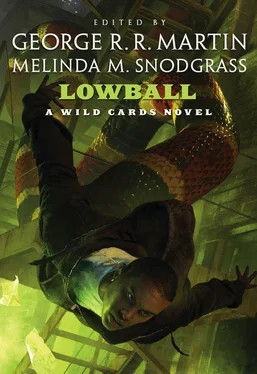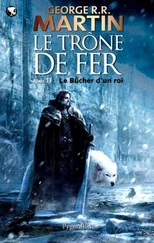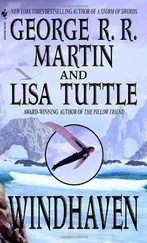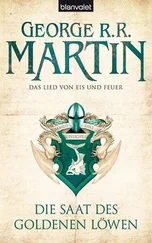George Martin - Lowball
Здесь есть возможность читать онлайн «George Martin - Lowball» весь текст электронной книги совершенно бесплатно (целиком полную версию без сокращений). В некоторых случаях можно слушать аудио, скачать через торрент в формате fb2 и присутствует краткое содержание. Год выпуска: 2014, ISBN: 2014, Издательство: Tor Books, Жанр: Фэнтези, на английском языке. Описание произведения, (предисловие) а так же отзывы посетителей доступны на портале библиотеки ЛибКат.
- Название:Lowball
- Автор:
- Издательство:Tor Books
- Жанр:
- Год:2014
- ISBN:9781429956413
- Рейтинг книги:3 / 5. Голосов: 1
-
Избранное:Добавить в избранное
- Отзывы:
-
Ваша оценка:
- 60
- 1
- 2
- 3
- 4
- 5
Lowball: краткое содержание, описание и аннотация
Предлагаем к чтению аннотацию, описание, краткое содержание или предисловие (зависит от того, что написал сам автор книги «Lowball»). Если вы не нашли необходимую информацию о книге — напишите в комментариях, мы постараемся отыскать её.
Lowball — читать онлайн бесплатно полную книгу (весь текст) целиком
Ниже представлен текст книги, разбитый по страницам. Система сохранения места последней прочитанной страницы, позволяет с удобством читать онлайн бесплатно книгу «Lowball», без необходимости каждый раз заново искать на чём Вы остановились. Поставьте закладку, и сможете в любой момент перейти на страницу, на которой закончили чтение.
Интервал:
Закладка:
That turned out to be a rich vein. Kazakhstan was an oil producer, with oil producer-level corruption. Drugs, whores, counterfeiting, human trafficking, all on a significant scale-especially for a city with a population under fifty thousand.
Drilling down in each category, Jamal built up a list of names and links that he saved in another file. By the time he had gone through the primary areas of criminal activity, he realized one name showed up in all four: a party known as “Baba Yaga.”
There was no file on Baba Yaga, just a name and a list of activities that filled a page. All agencies were on record as welcoming further details-
God bless those foreign crime lords. They were always coming up with cute names for themselves. Johnny Batts. The Vicar. Of course, Jamal himself was known as Stuntman and he worked with the Midnight Angel-
Whatever . The name “Baba Yaga” was familiar to Jamal from some childhood book or movie, so he called up Wikipedia for a refresher even as he pictured some slick-haired, black-eyed young thug out of Scarface .
Oh. It turned out that Baba Yaga was a witch or a hag. Didn’t sound like the kind of name a young male hood would choose … unless that young male hood had a terrific sense of humor, which was not usually part of the ensemble.
Male or female, Scarface or hag, this Baba Yaga owned an establishment named Maxim’s. Which happened to be the establishment where citizen Joseph Frank got in trouble with a hooker.
Jamal sat back. Detective Francis Xavier Black was going to find this useful. Which was a good thing, because Agent Jamal Norwood was down for the count, out of the game, on the disabled list.
Likely for the rest of his short life.
No Parking Mon-Fri 7-9am 3-5pm Except Buses No Loading Except Authorized Commercial Vehicles Mon-Fri 9am-3pm Except Wednesday With Pass-1 Hour Limit Snow Emergency Route/No Parking Odd Side During Snow Emer. No Parking 3-5am March/November No Standing Other Times
by Ian Tregillis
Wally Gunderson sighed when he saw the conglomeration of parking signs. They were bolted to a single streetlight, like a profusion of fungus on a steel tree. His steam-shovel jaw creaked up and down as he read each line to himself, trying to decipher Jokertown’s byzantine parking regulations. He scratched his forehead. It sounded like a railroad spike dragged across an iron skillet.
No standing ? What the heck did that mean?
The blare of a car horn broke his concentration. A hairy lizard leaned from a window of the delivery truck idling behind Wally’s rusted and battered ’76 Impala.
“Hey, Tin Man!” she yelled. “Move it!”
He glanced at his watch. Crud . He’d be late picking up Ghost again. The adoption committee got sore about stuff like that.
He didn’t have time to cruise around for a different spot. But Wally wasn’t very good at parallel parking-it would take just as long shimmying the car back and forth to ease into the spot. Plus, he felt pretty badly when he scraped the other cars. So he used a shortcut.
Wally hopped out of the Impala. The lizard lady lay on her horn. He waved at her. Crouching alongside his car, he reached underneath to grip the frame in one hand. He paid careful attention to his hands, knowing from experience that if he wasn’t careful he ran the risk of accidentally rusting through the chassis. Then, after wrapping his other arm over the trunk, he gave the car a solid shove.
It skidded sideways seven feet and slammed against the curb. It went straight into the gap, but Wally overshot. The Impala bounced over the curb, cracked against the parking meter, and scraped a Toyota on the rebound. The Toyota’s car alarm shrieked. The parking meter toppled to the sidewalk with a crash.
“Nuts,” said Wally. “Not again.” The delivery truck sped past him.
He surveyed the damage. The meter had been felled like a tree in high winds, complete with a little clump of concrete at the base like the root ball. The LCD window in the meter blinked nonsense patterns of static hash before fading to black, like the last gasp of a dying robot. He couldn’t open the Impala’s passenger door, which now sported a large dent. He’d have to pound it back into shape later.
From the glove compartment, he fished out a notepad, pen, and roll of duct tape. Wally scrawled a note of apology on the pad, tore off the sheet, folded some money into the note, and taped the package to the broken meter. Duct tape worked better than masking tape. This he’d learned through trial and error.
People were staring. Wally gave a guilty shrug, then headed at a fast walk toward the Jerusha Carter Childhood Development Institute. He glanced at his watch again. The fast walk became a jog. The pounding of his iron feet left a trail of cracks in the sidewalk.
Things would have been so much easier if he could take the subway. But sometimes it got crowded, and when that happened people got shoved up against him, and when that happened the seams and rivets of his iron skin could hurt folks. Didn’t matter how careful he was.
As he passed the Van Renssaeler Memorial Clinic, a flash of yellow caught Wally’s attention. He paused at the entrance to the Institute, his hand resting on the door. A boxy three-wheeled cart turned the corner a few blocks up. It was painted blue and white like a police car and had a yellow strobe on top. The cart puttered along the row of parked cars. It eased to a stop alongside a Volkswagen. The driver strutted out, brandishing a ticket pad. A dishwater blond ponytail poked from the brim of her hat.
Wally sighed. “Aw, rats. Not her again.”
Ghost hadn’t yet finished her counseling session when he arrived. She sat cross-legged on the floor in one of the glassed-in side rooms along the courtyard, talking to one of the Institute’s child psychologists. The doc saw Wally but kept her attention on Ghost. Wally’s foster daughter didn’t see him. He tiptoed away.
Ghost had resisted the counseling for quite a while; it had been a relief for all involved when she started engaging with the teachers and staff at the Institute. For the longest time she trusted only one adult, and that adult was Wally. He’d rescued her from the life of a child soldier in the People’s Paradise of Africa, where she had been an experiment: infected, traumatized, brainwashed, trained to kill. But she was also a little girl who liked Legos, Dr. Seuss, and peanut-butter-and-mango sandwiches.
More and more, she was a little girl. But traces of the soldier remained. And probably always would.
A few of her classmates played in the courtyard. They shouted and waved at Wally. He knew most of them; he and Ghost had been coming here since before the Institute opened. There was little Cesar, whom he’d known as long as Ghost, and who faced similar counseling issues; Moto, the boy who exhaled searing gouts of flame when he got excited, or frightened, or a case of the hiccups; Allen, whose mother and father were both in jail; Jo, who always wore the top half of a cow costume and refused to say anything except “Moo” and “Dickwad.” Some of the children had come from Africa, like Moto and Cesar, though not with Wally. Others had come to the Institute in the intervening years.
The world was full of troubled kids. But you couldn’t save them all. Wally had learned that the hard way. No matter how much he wanted to, he couldn’t forget the smell of the mass grave in Nyunzu, where his pen pal had been murdered. Failing Lucien was the worst thing he had ever done. The shame made Wally so sad and angry that sometimes he wanted to punch the whole world.
He swallowed the stone in his throat and waved to the kids. “Howdy,” he said.
An immense baobab tree shaded the sandbox. Wally laid a hand on its bark. “Hi, you,” he whispered. The surrounding building shielded the tree from wind, but sometimes it seemed as though the leaves rustled in response to his greeting. The baobab smelled of rain, and jungle, and a lost friend. It made Wally smile, but it also made him feel lonely. Sometimes it felt like his ribs were still shattered, pushing spurs of bone to pierce his heart. But he tried not to let it show.
Читать дальшеИнтервал:
Закладка:
Похожие книги на «Lowball»
Представляем Вашему вниманию похожие книги на «Lowball» списком для выбора. Мы отобрали схожую по названию и смыслу литературу в надежде предоставить читателям больше вариантов отыскать новые, интересные, ещё непрочитанные произведения.
Обсуждение, отзывы о книге «Lowball» и просто собственные мнения читателей. Оставьте ваши комментарии, напишите, что Вы думаете о произведении, его смысле или главных героях. Укажите что конкретно понравилось, а что нет, и почему Вы так считаете.












